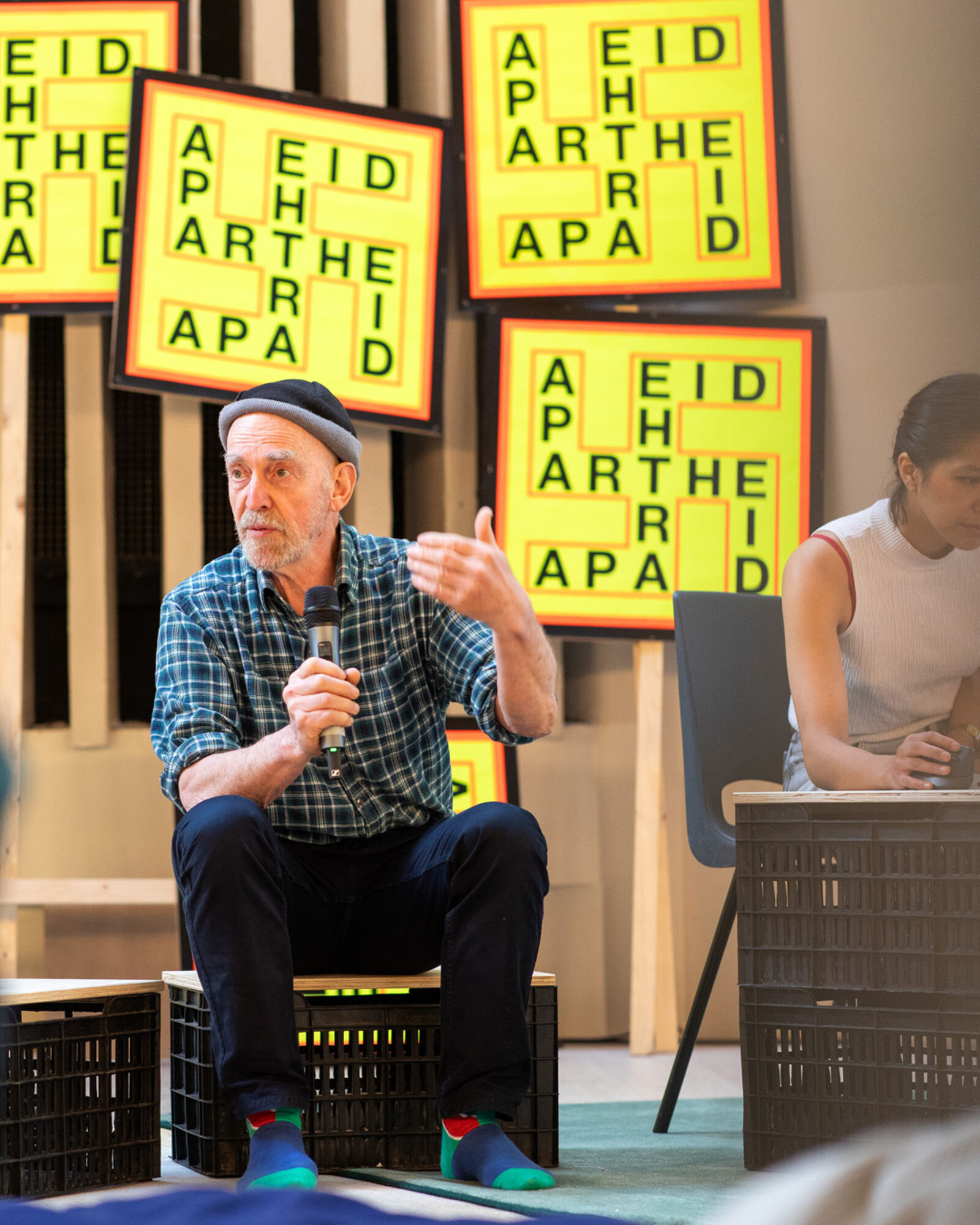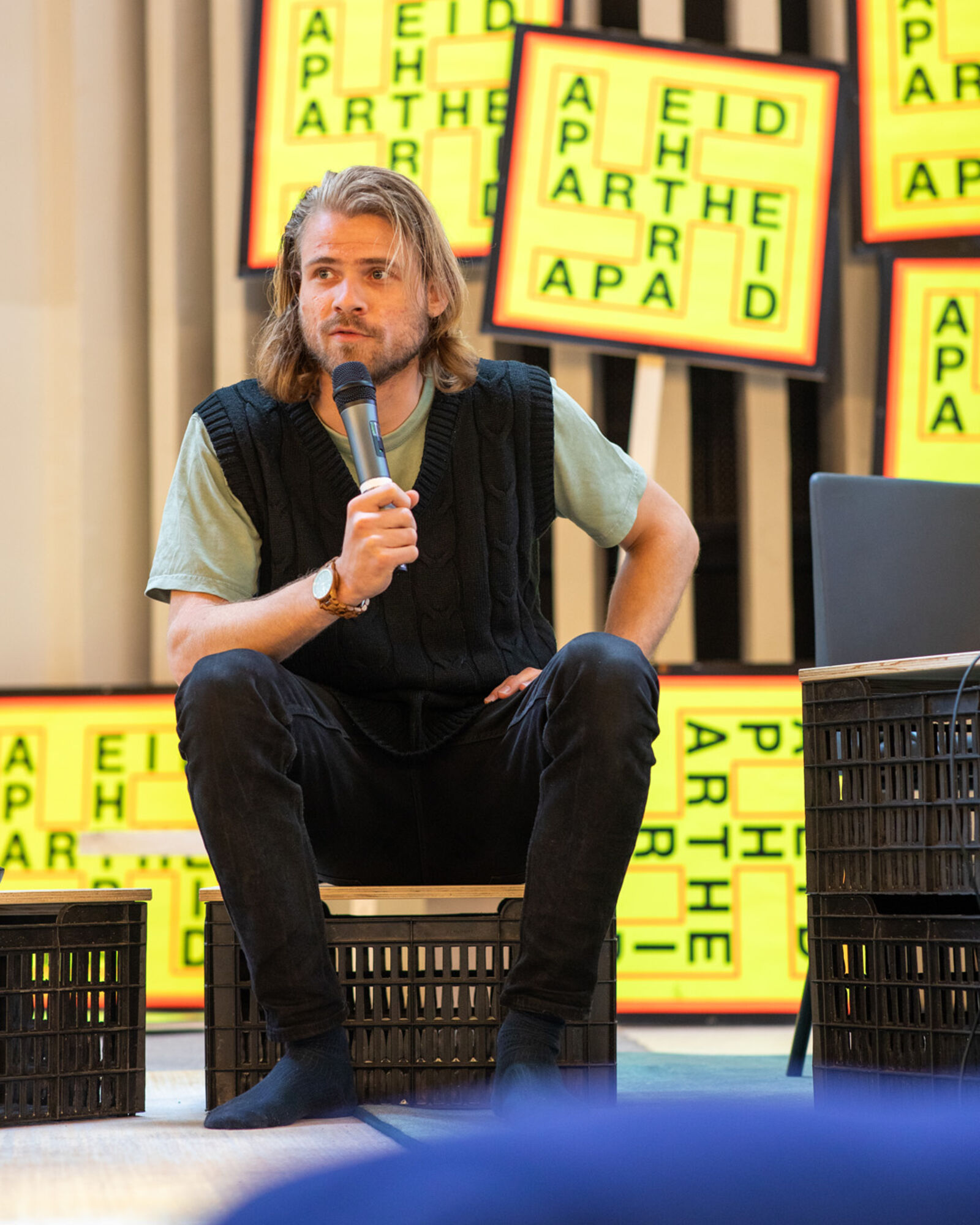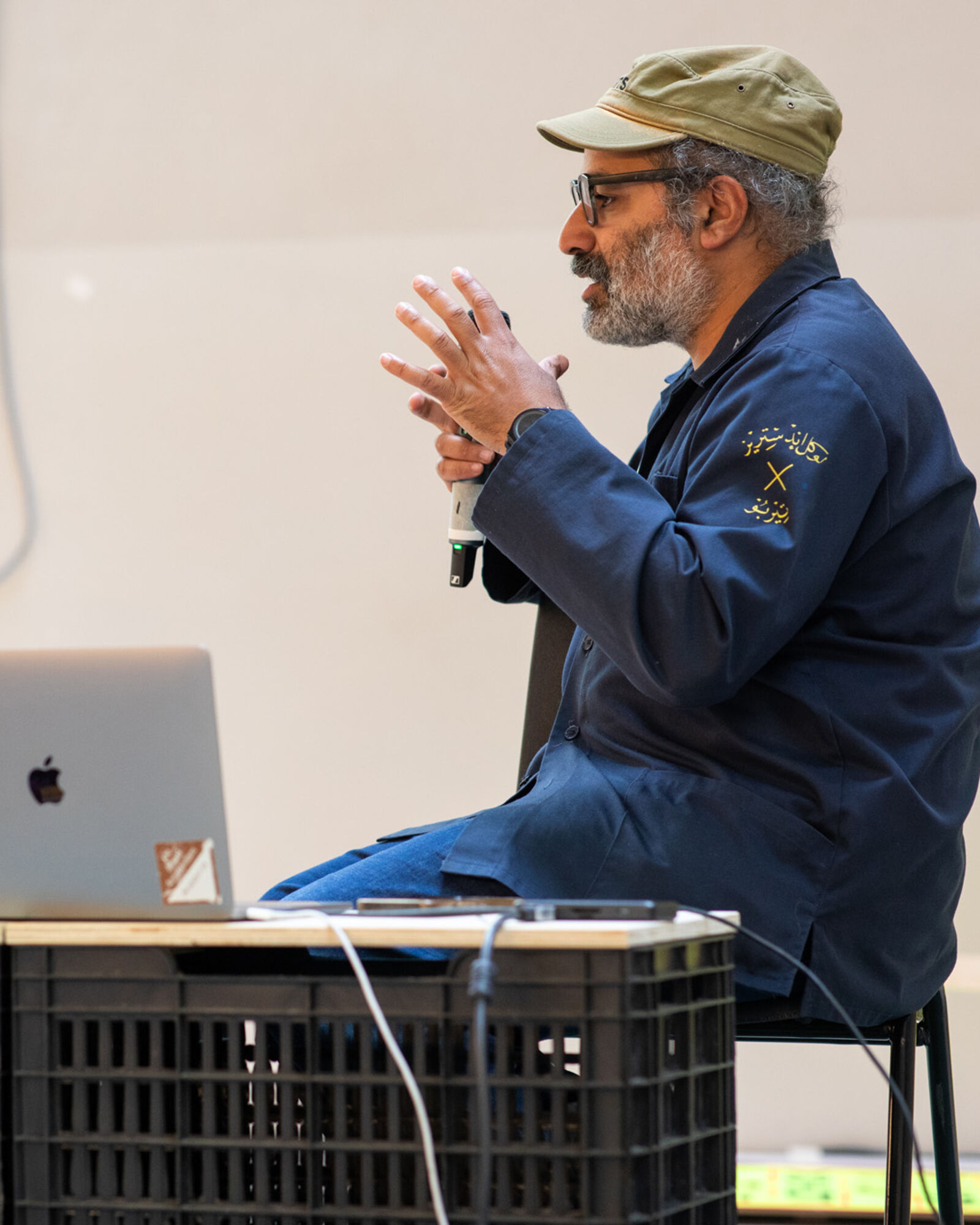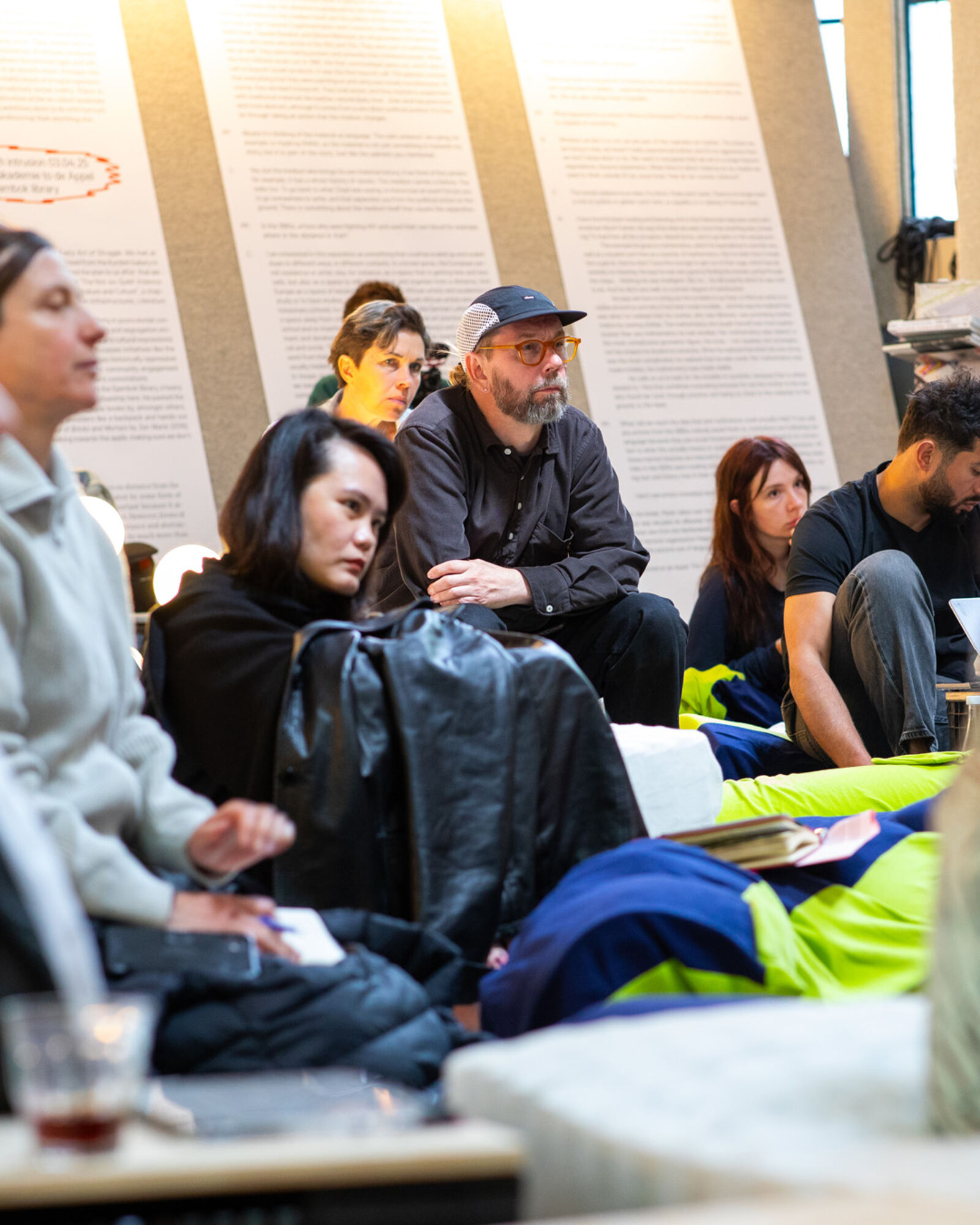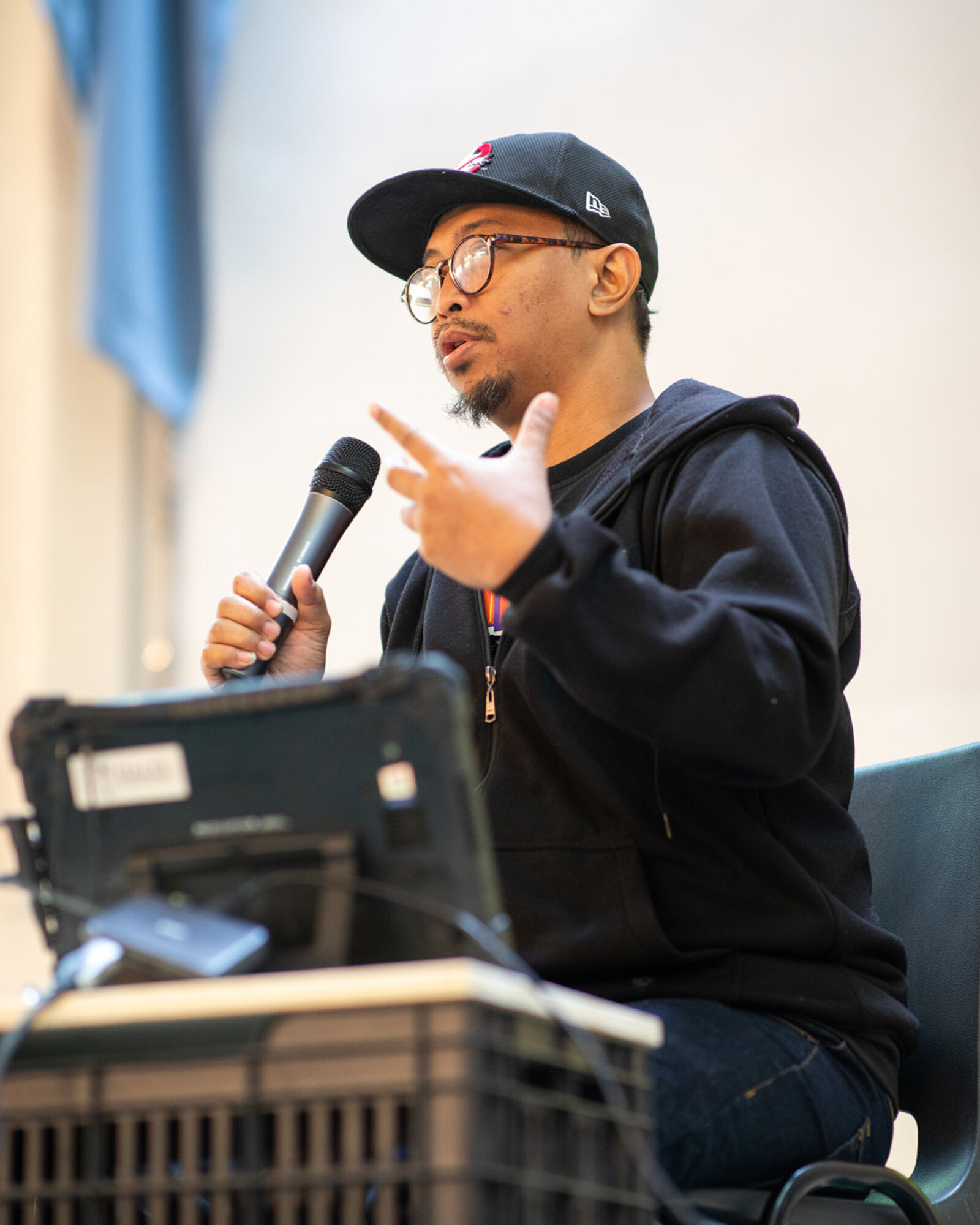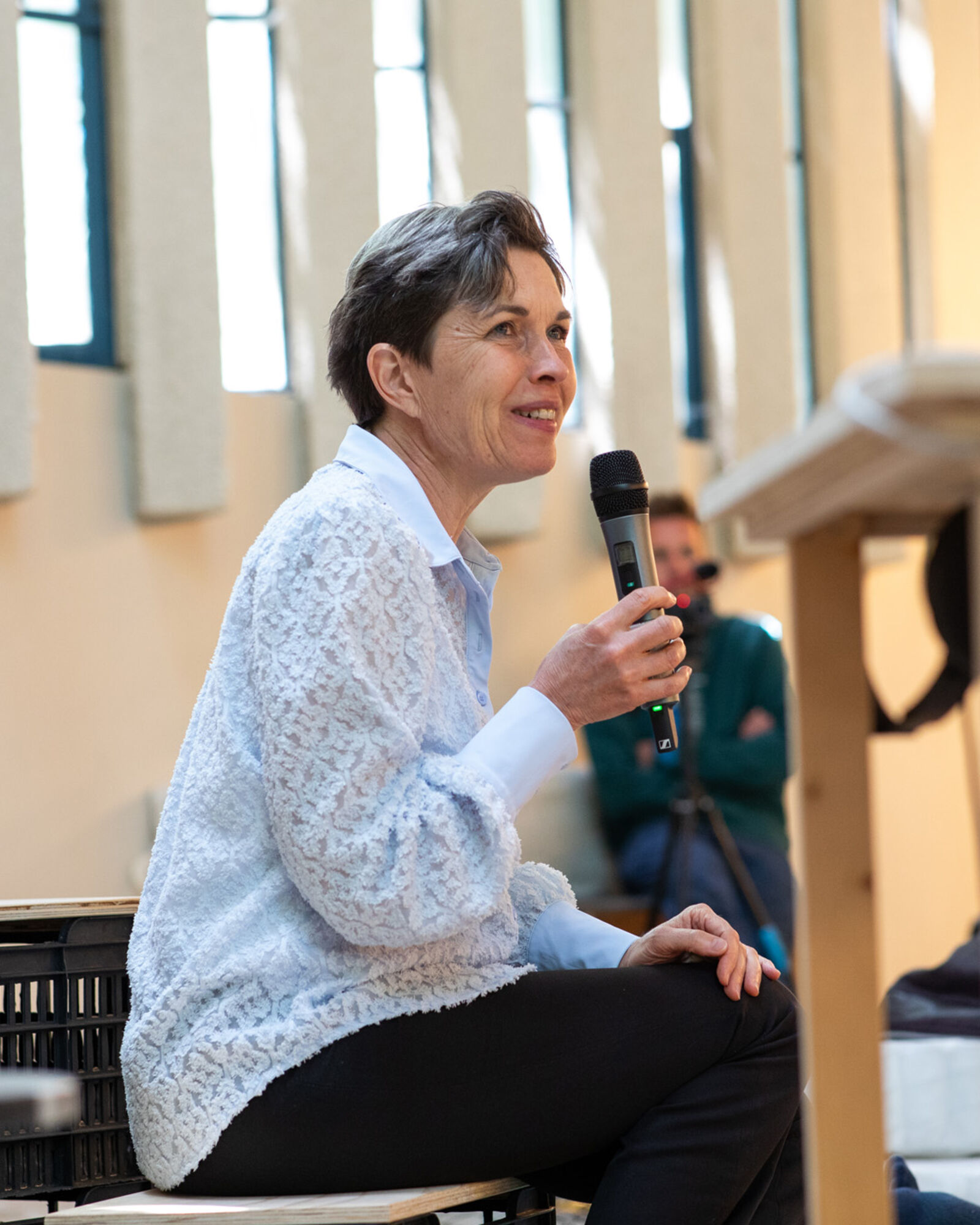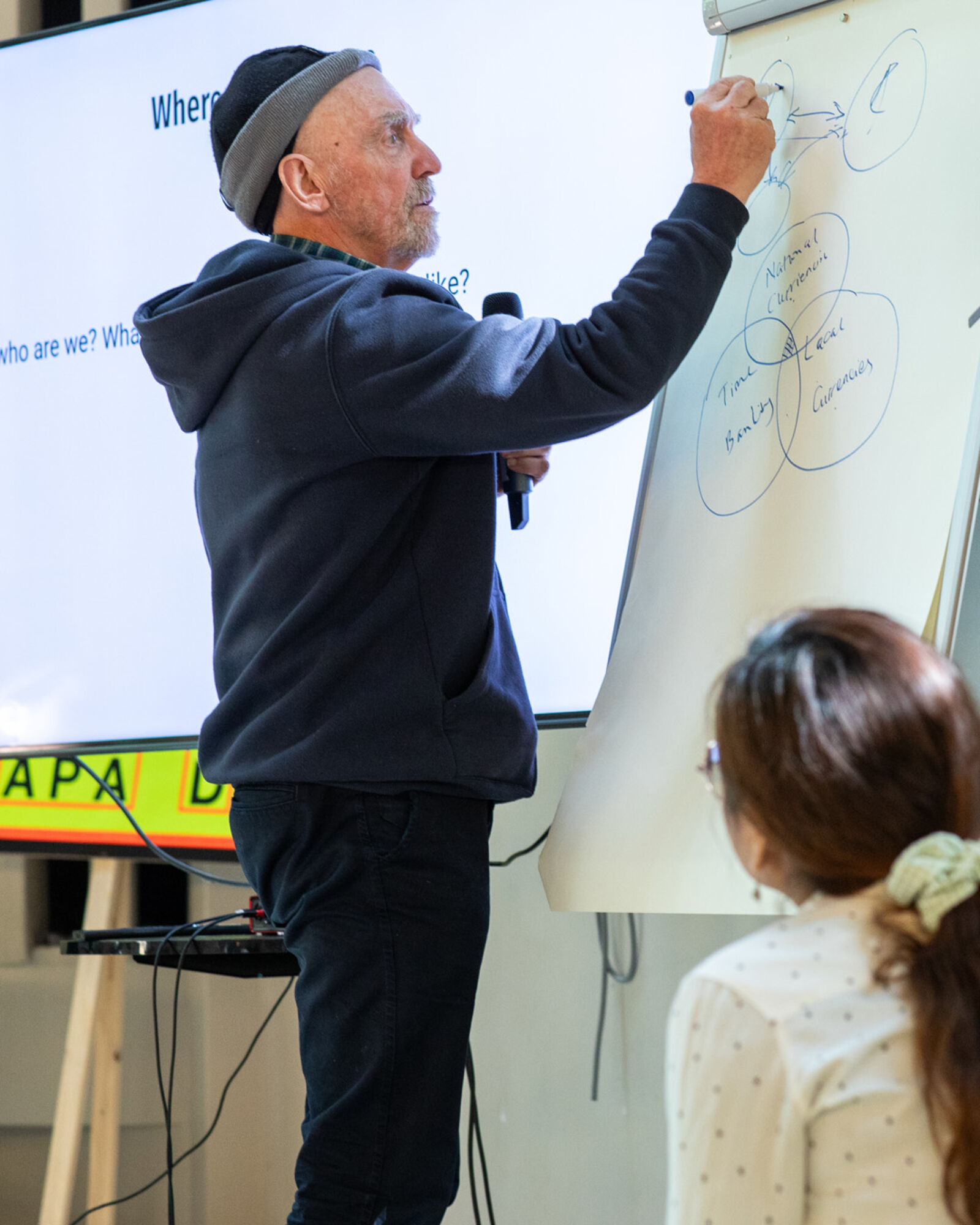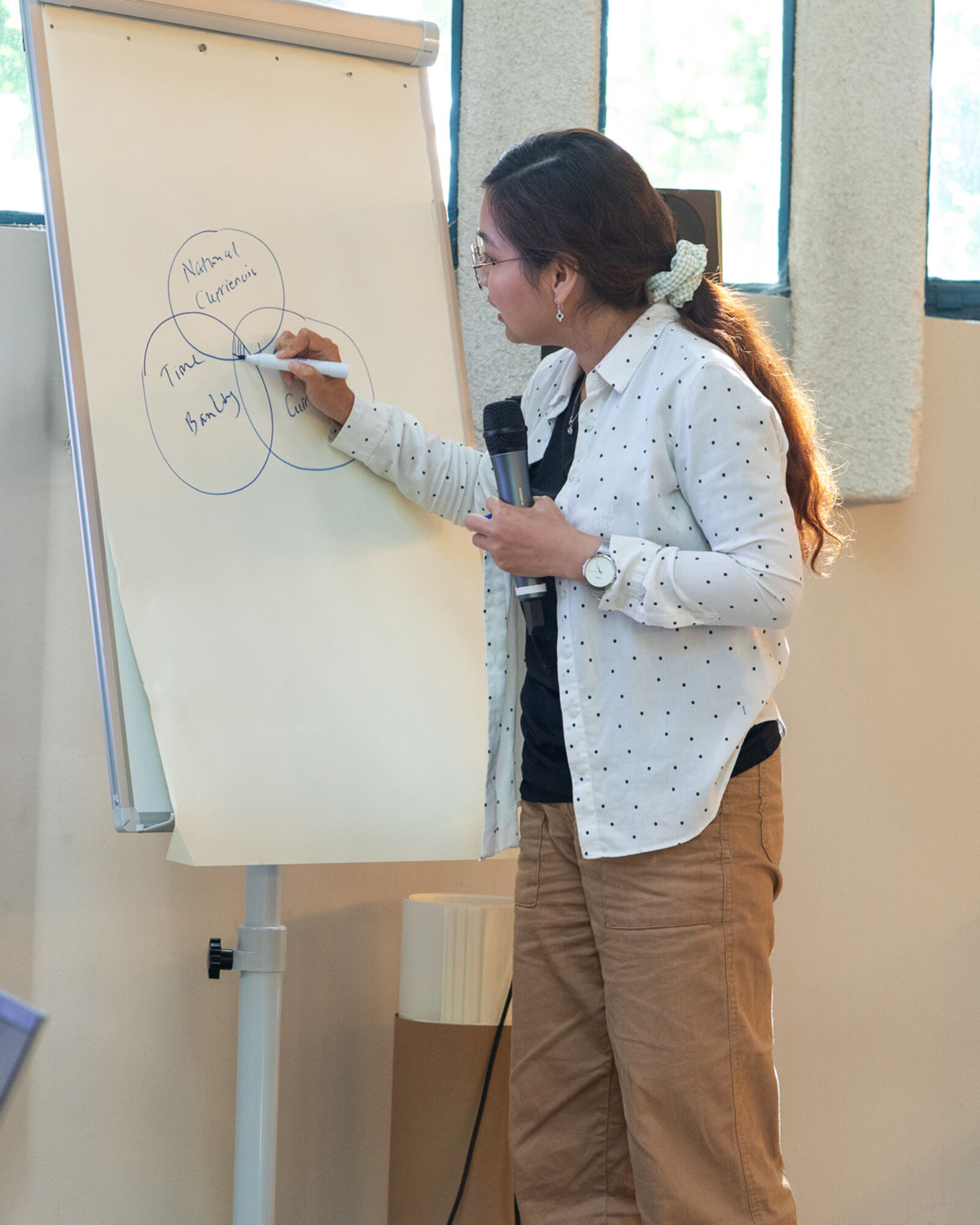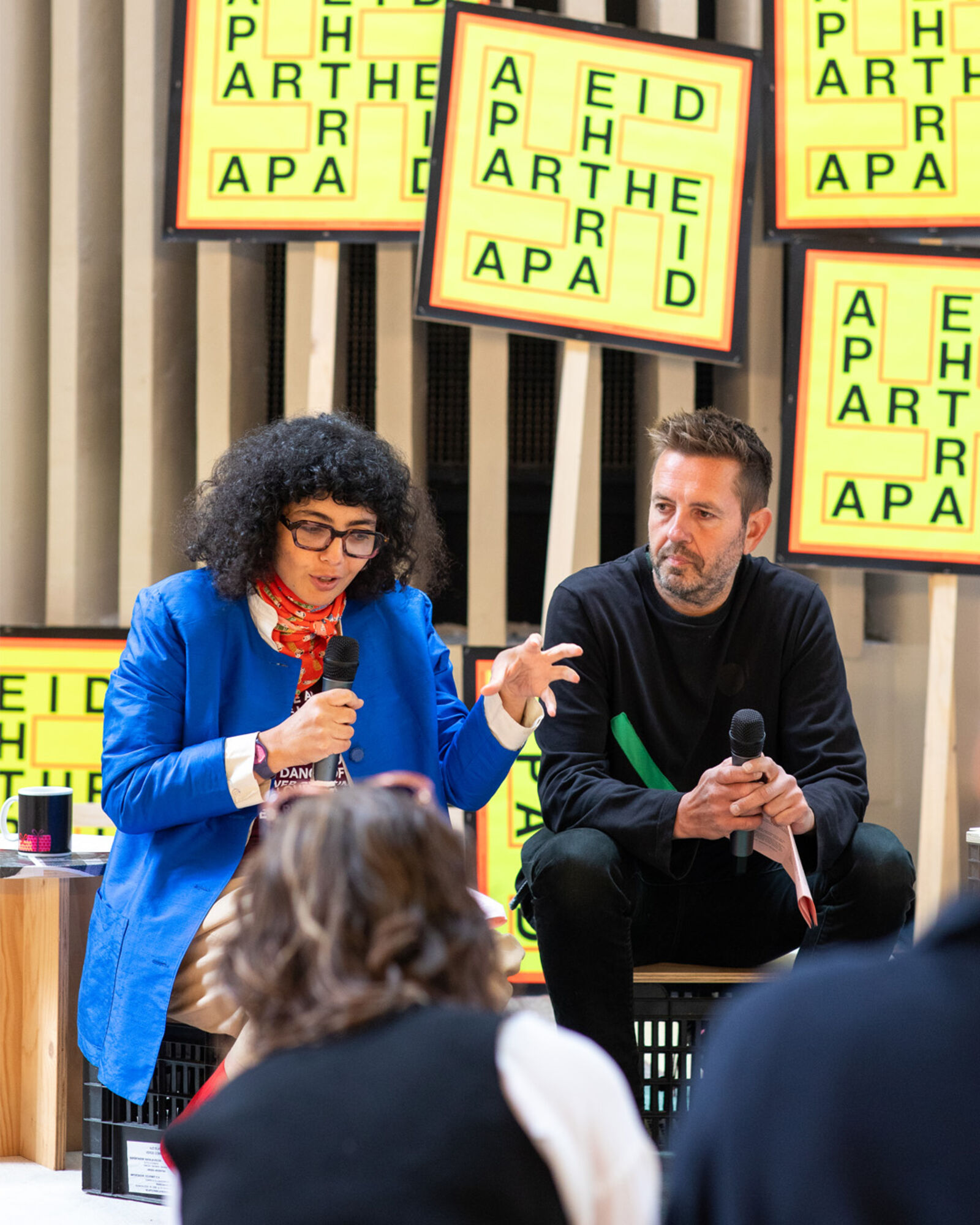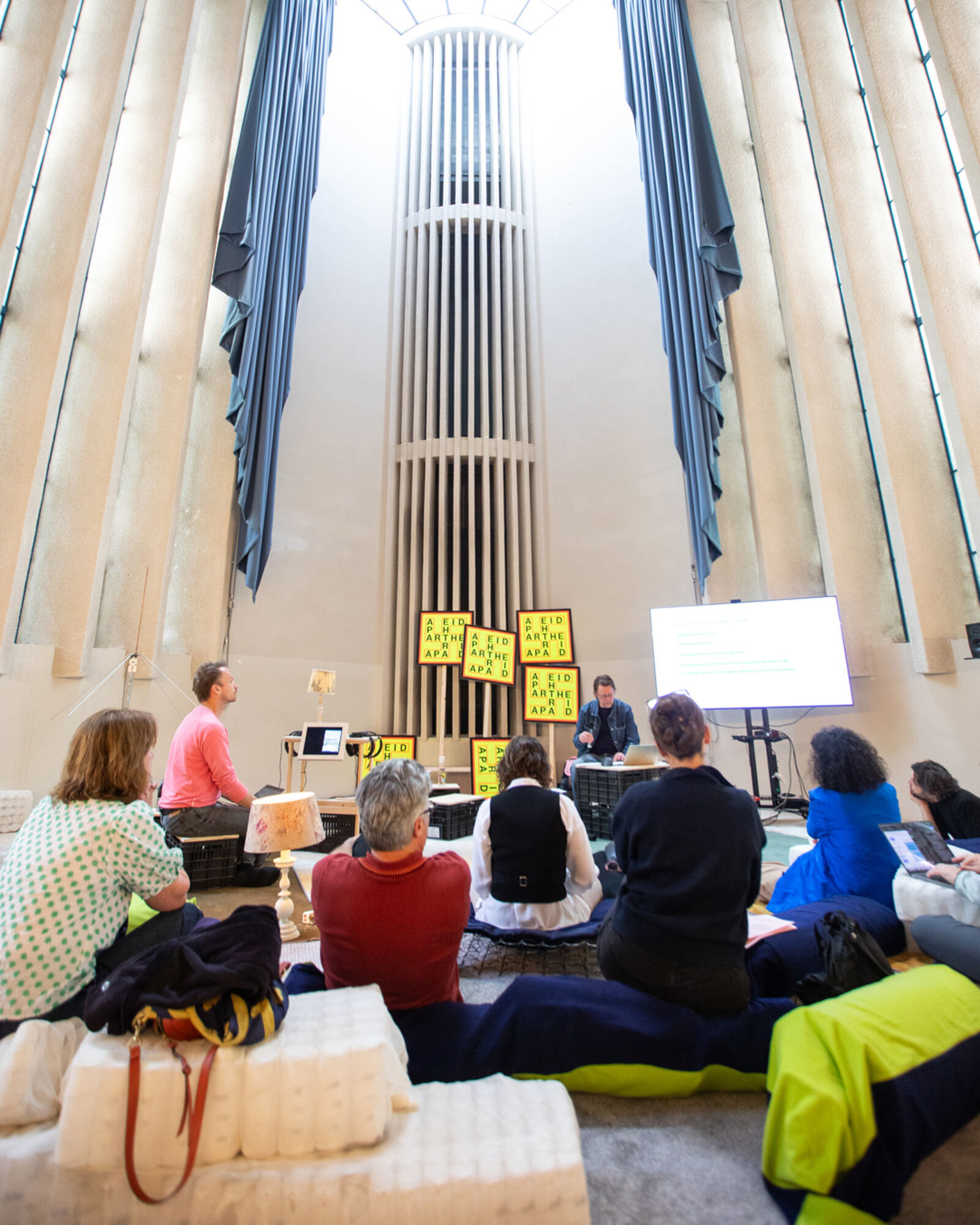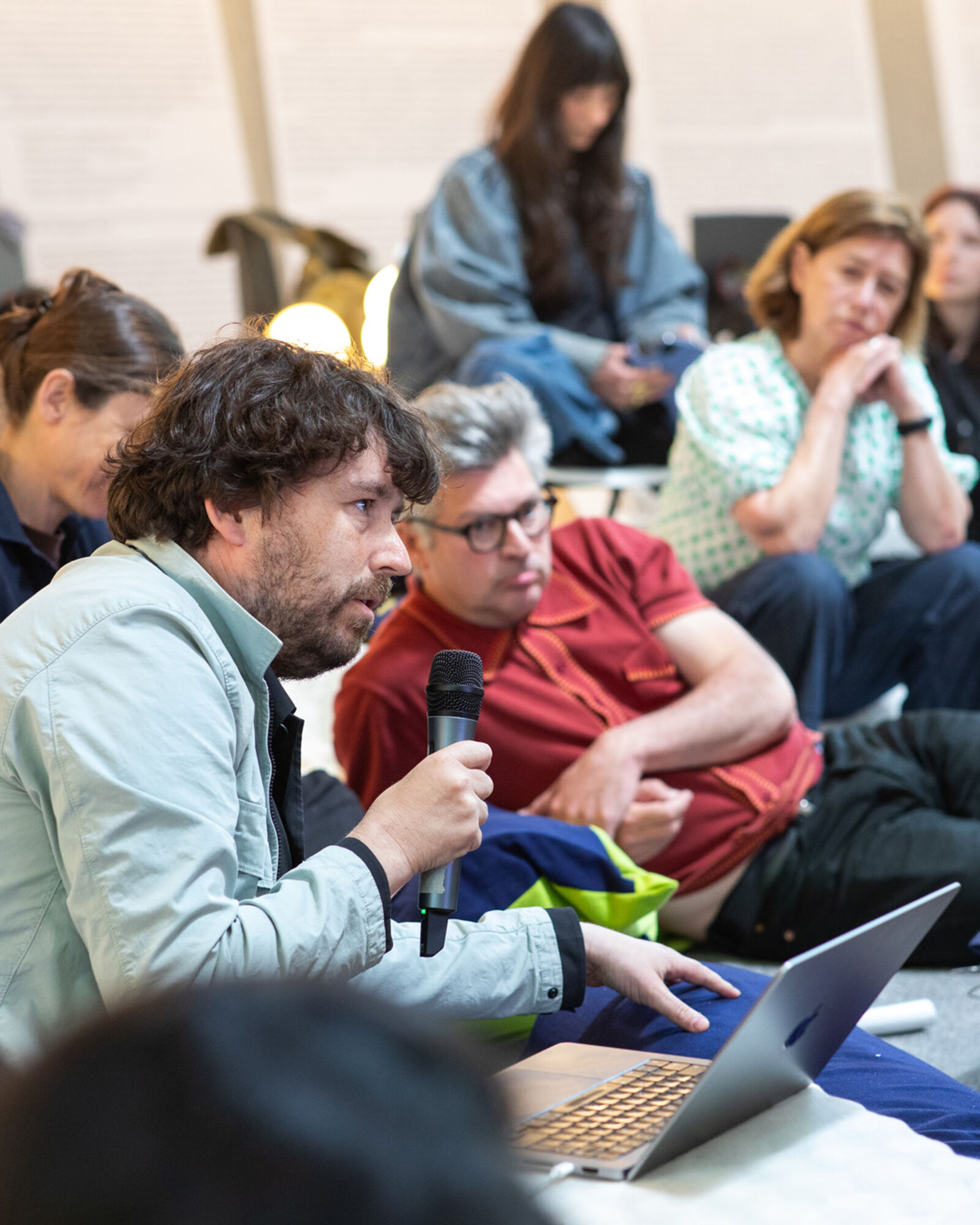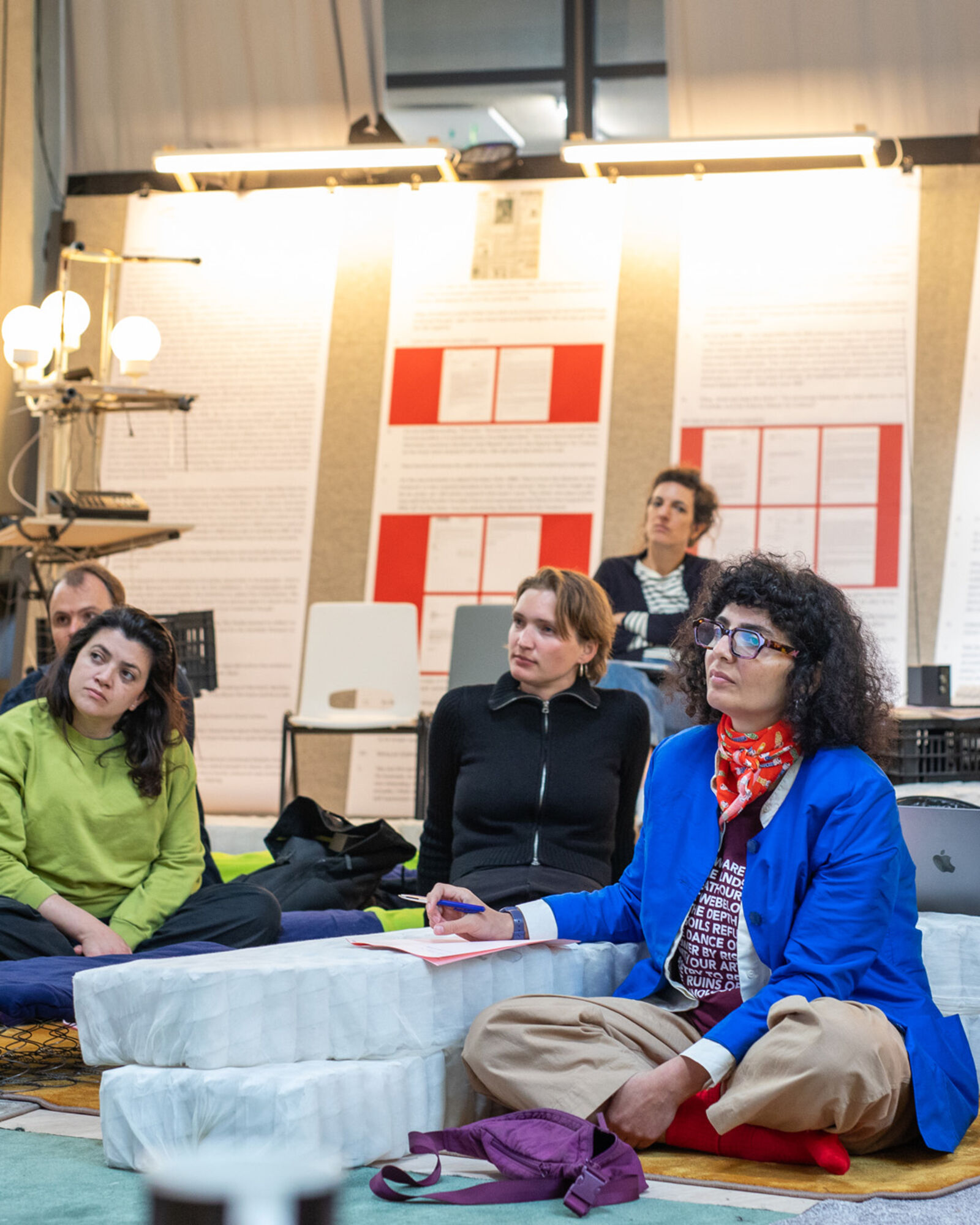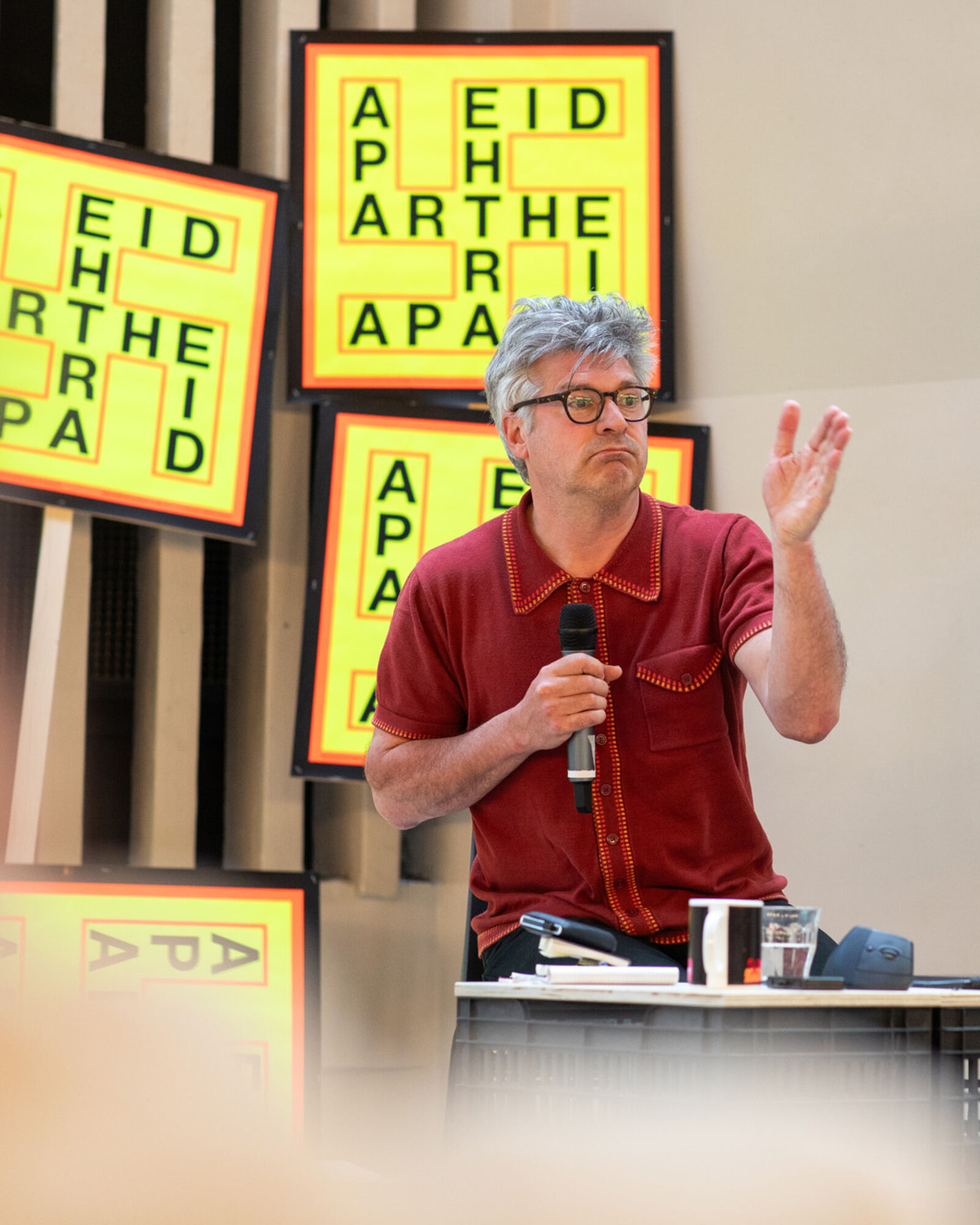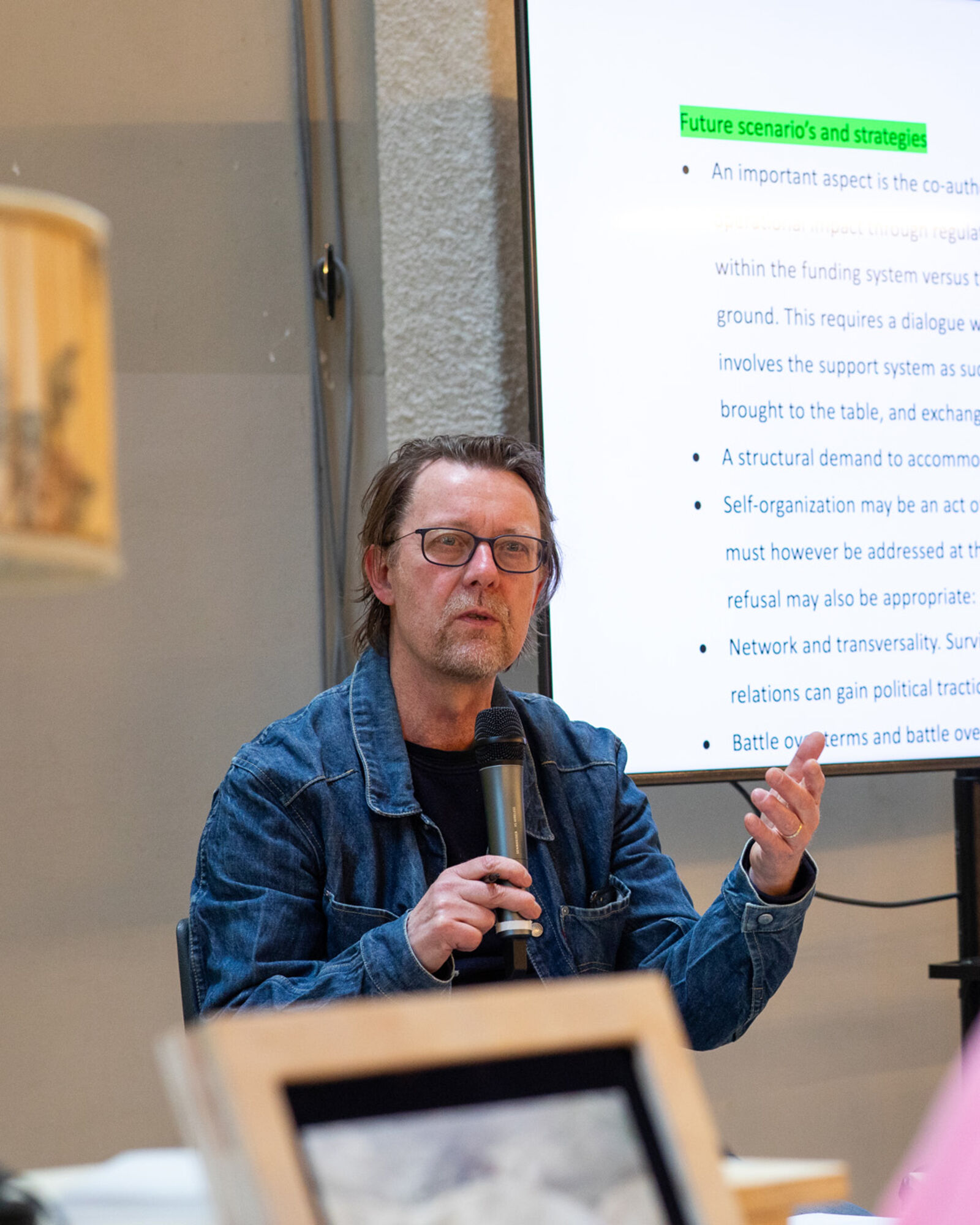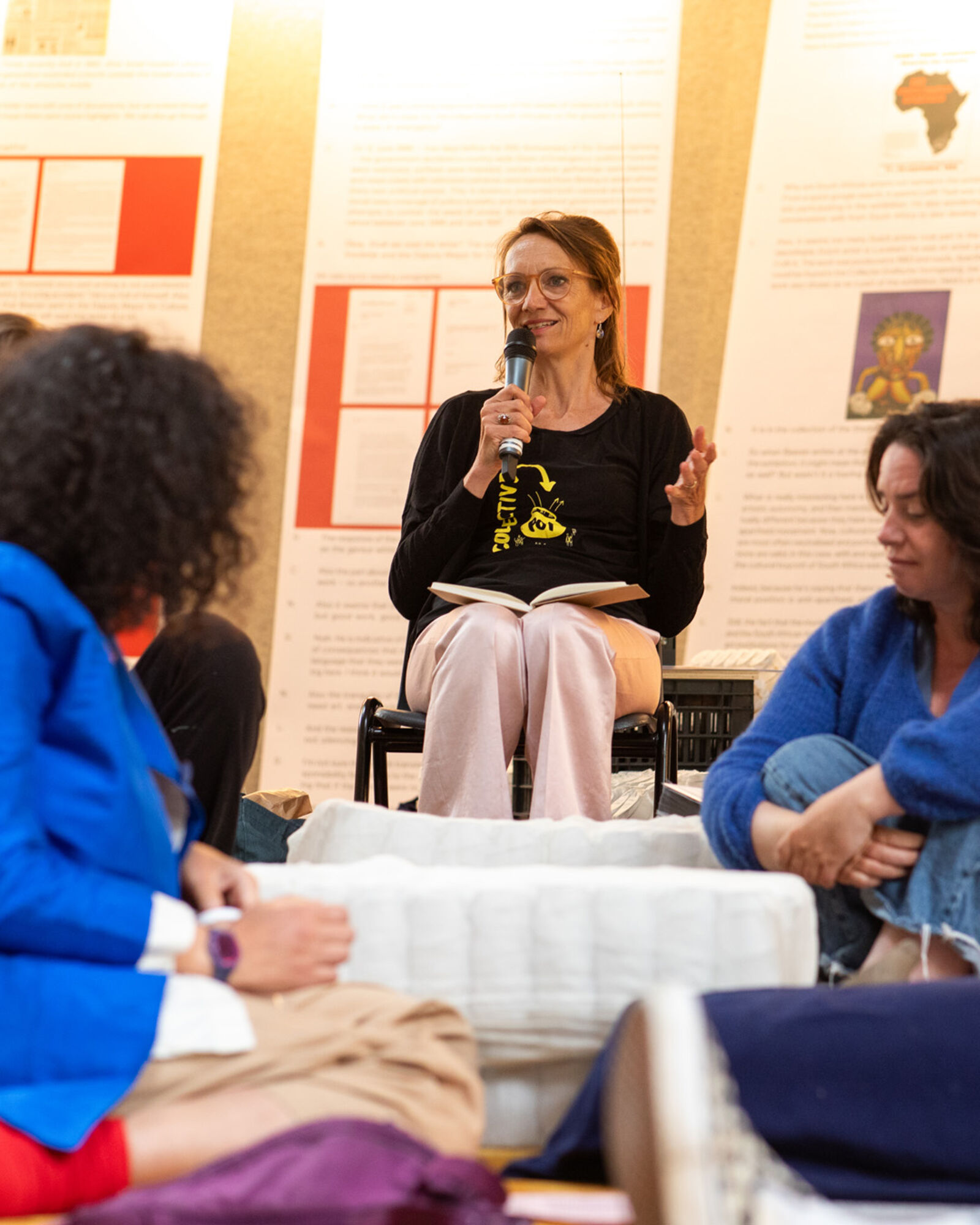Vrije Ruimte Festival: Cuts & Currencies
11:00–18:00
de Appel, Tolstraat 160, Amsterdam
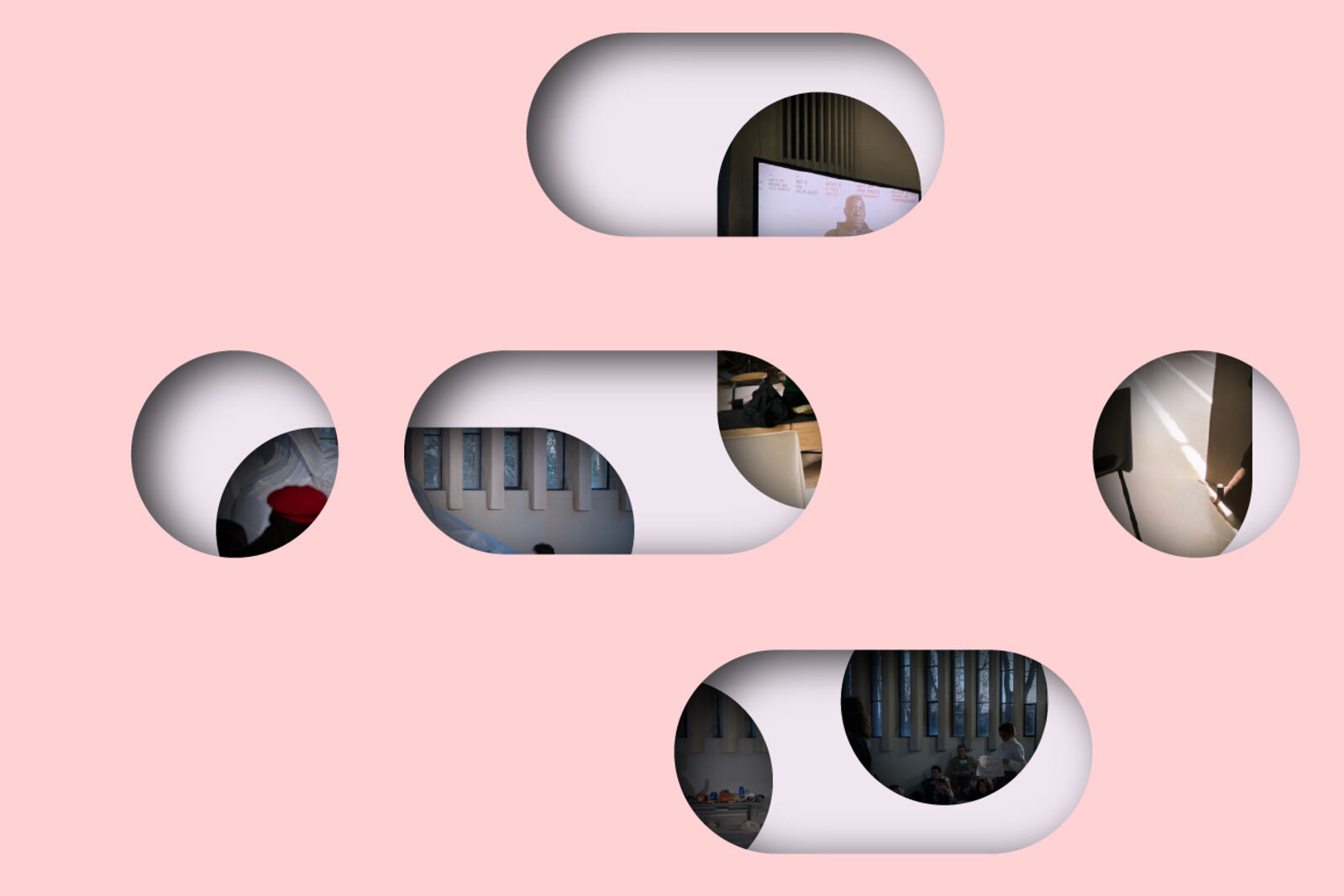
Vrije Ruimte Festival 2025, organised by Amsterdam Alternative, will take place in ten different locations on ten different dates throughout 2025, to celebrate the 10th anniversary of Amsterdam Alternative as well as 750 years Amsterdam. On Friday 16 and Saturday 17 May, the festival lands at de Appel for programmes on cuts and currencies.
Friday 16 May
Funding cuts and Moving Beyond State Dependency
Last year we saw many art and cultural institutions get defunded by municipal and national funding bodies in the Netherlands. This has a trickle effect on art workers in the Netherlands and on what kind of institutional, artistic and curatorial practices are supported. The defunding of institutions has instigated a barrage of questions that we (institutions and artists) have been asking ourselves together with many colleagues around the world. How can we read the current defunding of institutions? How do political ideologies, particularly neoliberal tendencies, shape the allocation and design of art subsidies? To what extent do liberal market principles influence public funding bodies? Does the pressure of neoliberal frameworks, commodify art and undermine its potential for genuine political dissent? How can art institutions and artists remain resilient and address structural precarity in the long term? How do we navigate our reliance on state funding under the current political order? How can we collectivise and share resources in light of a funding infrastructure that creates competition?
Speakers: Jack Segbars, Pascal Gielen, Koen Bartijn and Sepp Eckenhaussen
Respondents: Kris van der Veen, Sara Giannini, Arthur Steiner, Tessa Giller, Harriet Morley and Gertrude Flentge
Programme:
11am-1pm: Jack Segbars and respondents
1-2pm: Lunch
2-4pm: Pascal Gielen and respondents
4-5.30pm: Koen Bartijn and Sepp Eckenhaussen (via zoom in Breda) and respondents
5.30-6.30pm: Wrapping up - questions, thoughts
Saturday 17 May
Learning from Community Currencies
Many artists and communities use alternative currencies to redistribute value and keep resources circulating locally. These currencies allow them to control their means of exchange, advance their interests, and operate independently of banks, the mainstream economy, and national currencies. By implementing community currencies, local economies can mobilise underutilized resources, meet basic needs, and foster economic resilience. Could creating a local currency help strengthen connections and the economy within the Amsterdam Alternative network? We’ll explore this question with various experts.
Speakers: Henk van Arkel, Thomas Siderius, Yazan Khalili, MG Pringgotono, Heidi Leenaarts
Programme:
10.30-11am - Doors open
11-11.15am - Introduction
11.15-11.30am- Henk van Arkel - short introduction
11.30am-12.15pm - Thomas Siderius - presentation
12.15-12.25pm - Time to reflect on the presentation
12.25-12.50pm - Short documentary
12.50-1pm - Time to reflect on the docu
1-1.20pm - Presentation Yazan Khalili - Dayra
1.20-1.30pm - Time to reflect on the presentation
1.30-2.15pm - Lunch
2.15-2.40pm - MG Pringgotono - presentation Jalar Collective Wallet
2.40-2.50pm - Time to reflect on the presentation
2.50-3.30pm - Heidi Leenaarts - presentation United Economy
3.30-3.40pm - Time to reflect on the presentation
3.40-5.30pm - Henk van Arkel and Thomas Siderius - Workshop - how to set up an alternative payment system slash currency for/from the Amsterdam Alternative network
5.30-6pm - Closing
Session abstracts
Day 1
Pascal Gielen: Culture under Far-Right Governance: Commoning Survival Strategies
This lecture builds upon the analysis developed in Trust. Building on the Cultural Commons (2024), exploring how the rise of far-right governance in Europe can be understood as a paradoxical response to a deeper socio-political wound: the neoliberal erosion of solidarity, social cohesion, and cultural meaning. The turn to authoritarianism and identity politics is here interpreted as an affective reaction to decades of hyper-individualization, competitive logic, and institutional mistrust—conditions that have dried up the commons and the cultural soil from which collective trust can grow. By framing far-right politics as a misguided desire for belonging and shared meaning, this talk offers an alternative response rooted in the practices of cultural commoning. It argues that the cultural sector, even when confronted with shrinking public funding and tightened ideological control, can resist these dynamics not only by defending its autonomy, but by actively cultivating shared spaces of vulnerability, care, and co-creation. The lecture highlights how aesthetic experience, social interdependence, and commons-based practices form vital infrastructures for democratic resilience.
Jack Segbars: The infrastructural flytrap, artistic identity and self-containment
In the presentation some of the findings from the article The Art Subsidy System: Long-Standing, Unresolved Tensions published by Metropolis M will be unpacked. This research text, written together with Falke Pisano, is an attempt to analyse the problematic and structurally precarious situation of the arts within the funding system. In it we focus on how the struggle for a durable place for art production as a contemporaneous practice becomes side-lined by the prevailing political economy and governance. From this analysis we will propose some suggestions on how art production might start to contest this situation from within this constellation and from its own ambition. Rather than being offered a reserve, the focus for it should be the interaction with the conditional framework, to challenge the totalization by political economy to which it relates. Self-organization and dialogue on the form of work are part of such endeavour.
Sepp Eckenhaussen and Koen Bartijn
Currencies represent different, sometimes contradictory values in various contexts. Historically, monetary value has been conceived as opposed to artistic value. However, a growing cohort of artists and organisations takes the malleable value of money as their point of departure, and approaches the economy as a design question. What kind of transvaluation can cultural workers perform here and now? In this presentation, we look at a range of examples, from the collective financialization of public collections and the self-organisation of a basic income on the blockchain to local voting on the redistribution of public funding.
Day 2
Henk van Arkel
The session focuses in particular on money, how the type of money we use puts pressure on our society and makes it focus on material growth at the expense of a finite planet. 30 years ago, STRO decided to develop a viable alternative and spent 20 years of R&D laying the foundations for this.
Thomas Siderius: Transformative local currencies
This talk will cover a range of real-life examples of local currencies across the world, and the mechanisms they use to change the dynamic of their local economies. Drawing from these examples, lessons are learned about what makes local currencies work, and how these systems can be designed for different purposes.
Yazan Khalili on Dayra
Dayra is a medium for circulating communal debt within existing trust circles. It allows inter-dependency between different economies in the society through measuring, sharing, and exchanging the value of their local resources as existing wealth in the absence of money.
MG Pringgotono on Jalar Collective Wallet
Members of the platform Temujalar.art earn and collect digital points called Jalar for their Jalar Collective Wallet. They generate Jalar by contributing with resources or activities to the platform. They can spend them to join workshops and virtual events, or to build a collective space. The Jalar Collective Wallet resembles the common pot of documenta fifteen, mutually governed by collectives. Temujalar.art was initiated by Gudskul in 2020, at the beginning of the Covid-19 pandemic, as an online platform for collectives and their art ekosistems. It is based on the belief that online platforms enable knowledge exchange across geographical borders and timezones. In Indonesian, Temu means “to meet”, and Jalar means “to spread”. Temujalar.art is dedicated to artists, collectives, curators, writers, musicians, researchers, teachers, creative people, and the art ekosistem in general. The platform wants to help them to learn, collect experiences, and share knowledge.
Heidi Leenaarts
When we compare water and money, we see an important difference: we cannot see the flow of money. This talk uses the imagination of the audience to make the flow of money visible... and we will discover how it can be changed.
In our society, money has four functions. One of them is speculation, and that function has grown enormously. You can see it as a big pile of money. Money that does not flow around in society at all, but is used to make money grow further. With a thought experiment we investigate how this works and what consequences it has. This experiment shows how the monetary system exerts a never-ending pressure for economic growth. As a result, we are not only depleting the earth; we are also exhausting ourselves. An imagination exercise then helps us to understand how the monetary system has a strong influence on the functioning of our society. By seeing clearly how money works, we also begin to see how change can be brought about. The great opportunity is that we, the people, can reinvent the monetary system. In such a way that it contributes to addressing the challenges and opportunities of our time.
Together with many others, we are working on this in practice. And we have made some very interesting discoveries. First of all: it turns out to be possible. In fact, there are already countless examples in the world. In the Netherlands we have the United Economy, with 700 companies and 1100 individuals connected now. But there is more. United Economy, and the many networks we work with, have brought together more and more people and companies who really wánt change to happen. That way, something very interesting has emerged by itself: a new value-driven economy has become visible and recognizable. It is like a model economy in the middle of the big euro-driven economy. This value-driven economy is like a gift to each of us. I ask the audience to imagine how they would like to design this new economy. What to do with taxes? And prices? The creation of interest-free money for socially important projects? The great thing is that this economy is not just a fantasy; it already exists... and is developing. To fully exploit the potential of this model economy, we need good partners... so that together we can show that real economic change ís possible.
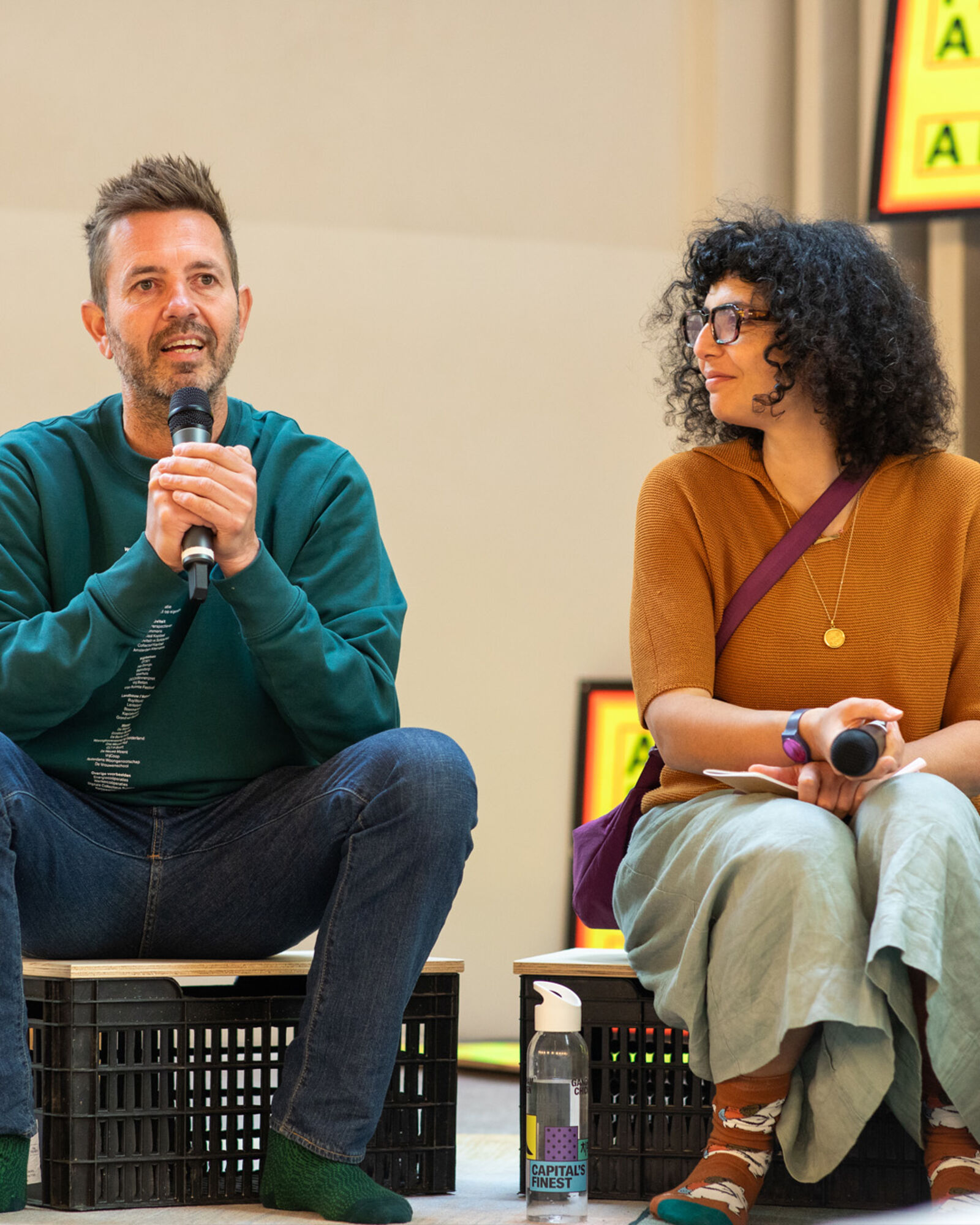
Photos: Kevin Priolo
